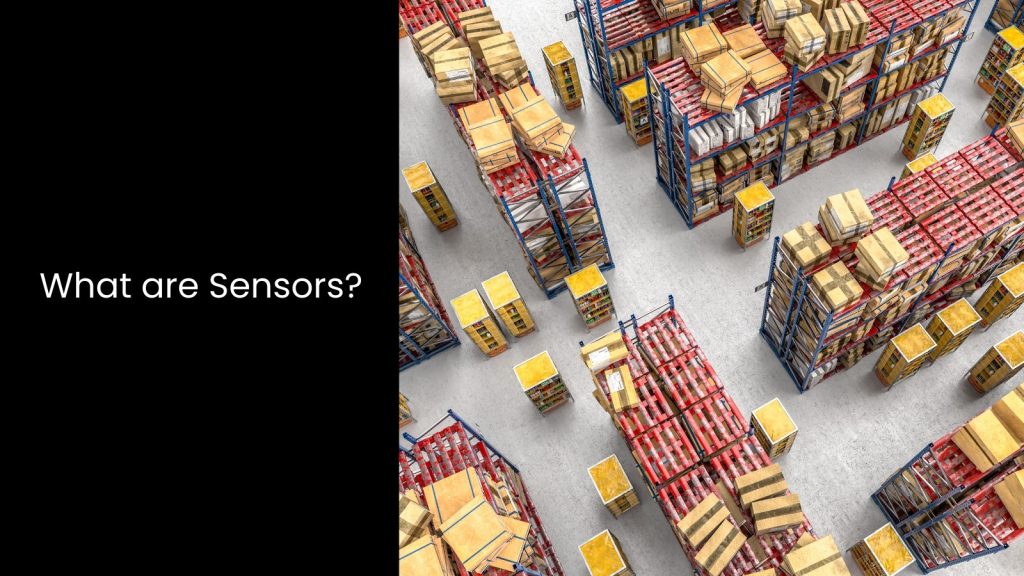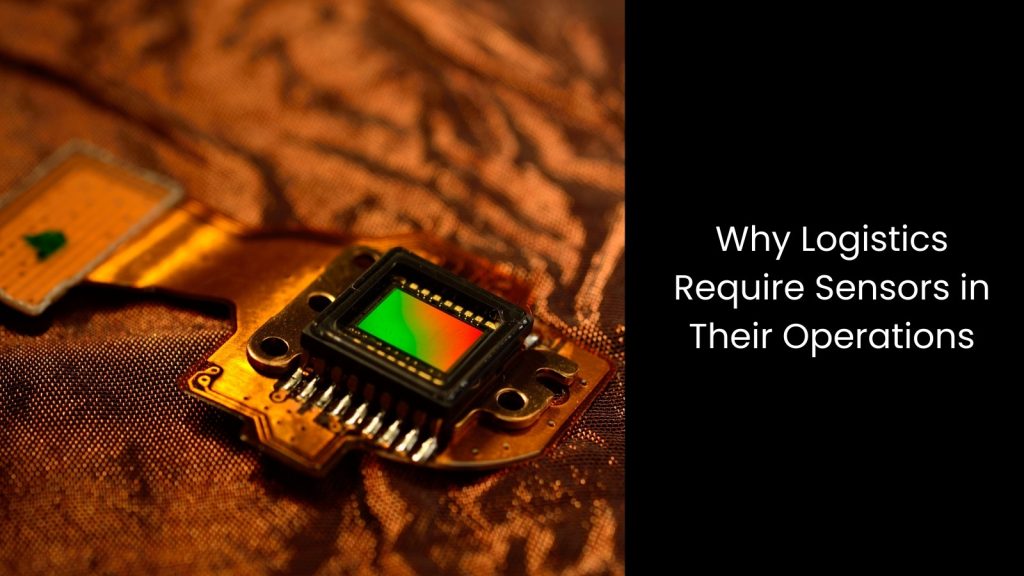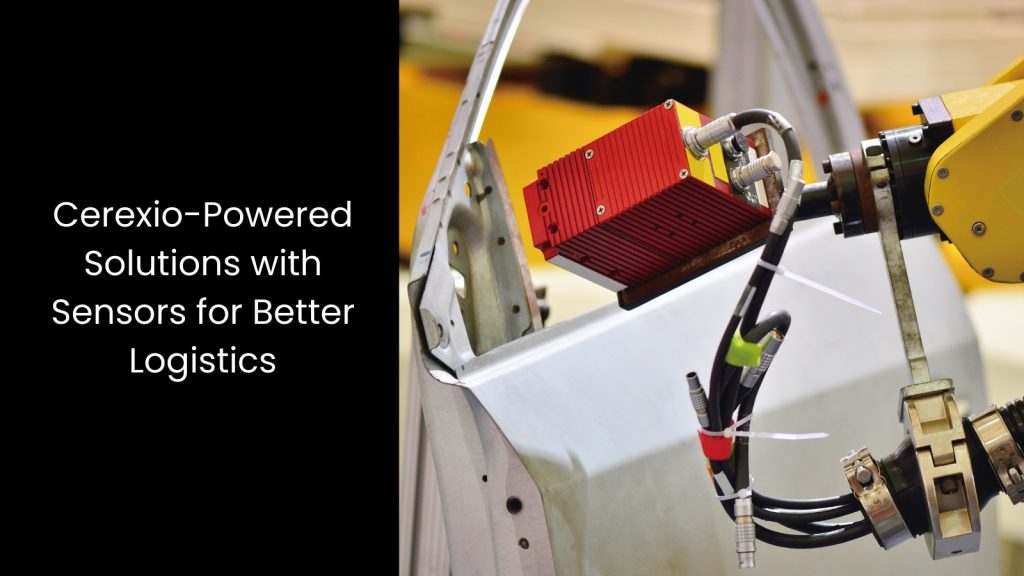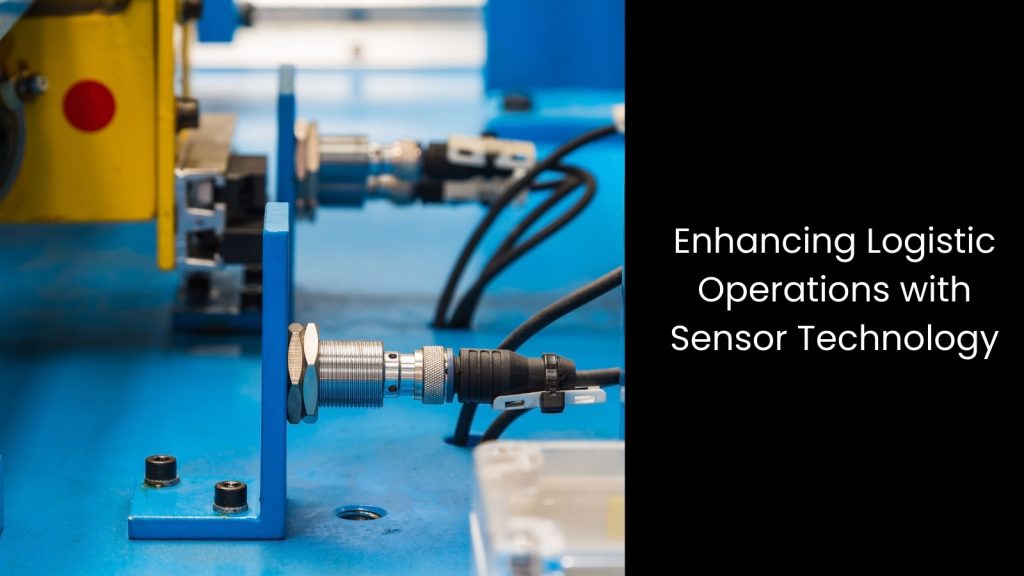If you are from the logistics industry, you may know how hard it is to imagine a world where every shipment arrives precisely on time, every piece of inventory is accounted for, and every vehicle runs smoothly. However, this is not a far-off dream in Singapore, thanks to modern technology. Yes, it is a reality, largely driven by the power of sensors. Consistently ranked as the world’s top logistics hub, Singapore’s dominance in global trade and supply chains is no accident. In the 2023 Logistics Performance Index (LPI), Singapore clinched the top spot for the 13th consecutive year, a testament to its relentless pursuit of efficiency and innovation. At the heart of this success lies sensor technology, which revolutionises how logistics operations are managed.
This article dives deep into the importance of sensors for logistics.
We will explore
What are Sensors?

- Sensors are devices that detect and measure physical changes like temperature, motion, humidity, light, or pressure and then convert these changes into data that can be analysed and used in various ways.
- The sensor mechanism typically involves a sensing element that responds to environmental changes, such as a temperature sensor detecting heat changes or a motion sensor detecting movement. Once the sensor collects this data, it transmits it to a central system, often through wireless or wired networks. This process allows sensors to offer real-time data by sending instant updates to the main panel or control system, where the data is analysed and used to make decisions, issue alerts, or trigger actions.
- The popularity of sensors in Singapore across many industries, such as logistics, healthcare, and manufacturing, stems from their ability to boost operational efficiency, improve safety, and reduce costs by preventing issues before they arise.
Why Logistics Require Sensors in Their Operations

Accurate Asset Tracking
Did you know a typical logistics company might manage thousands of assets like pallets, containers, and trolleys?
Keeping track of these items is essential for smooth operations, and that is where sensors come in. Sensors play a vital role in modern logistics by enabling accurate asset tracking, ensuring companies know where each item is at any given time.
With sensors attached to pallets, containers, or trolleys, companies can monitor their assets’ exact location and status, preventing losses and misplaced items. This level of tracking minimises the risk of lost or delayed assets, which can cause costly disruptions. When logistics companies in Singapore use sensors to track assets, they can easily identify and locate each item, saving time that would otherwise be spent searching manually.
Compliance and Quality Control
Sensors play an essential role in helping logistics companies avoid these costly penalties by supporting strict compliance and quality control measures. How does this occur? Let’s find out.
Using sensors, companies can constantly monitor critical conditions, such as temperature, humidity, and pressure, ensuring products meet regulatory standards throughout transportation and storage. This real-time monitoring is particularly vital in sensitive industries like food, pharmaceuticals, and chemicals, where a slight variation in storage conditions can compromise product quality and safety.
As they can provide consistent, reliable data for quality checks, sensors help companies maintain these products under the exact conditions required, reducing the risk of spoilage or contamination.
The best thing is that Singapore logistics companies can automatically log sensor data as proof of compliance, offering a reliable record that satisfies inspectors and auditors.
Better Fleet Management
It is evident that sensors collect valuable data about vehicles, including speed, route choices, and driver behaviour. When tracking vehicle speed, logistics companies can ensure that drivers follow speed limits, helping reduce fuel consumption and wear on vehicles.
Sensors also allow for route optimisation, allowing logistics teams to plan the most efficient paths and reducing unnecessary detours and delays. This not only saves time but also helps conserve fuel, cutting down on costs and the company’s carbon footprint.
In addition to fuel savings, sensors provide insights into driver behaviour, such as hard braking or rapid acceleration, which can be signs of unsafe driving. By monitoring these behaviours, logistics teams can address issues like unsafe driving practices and improve overall safety on the road.
Temperature and Humidity Control
On average, the temperature inside a container or shipment can fluctuate greatly, especially when transporting sensitive goods like food, medicines, or chemicals.
This is where sensors become essential in modern logistics.
They are key in monitoring and controlling environmental conditions, specifically temperature and humidity, to ensure these goods are stored and transported under optimal conditions, as mentioned above.
For perishable items, even a slight deviation in temperature or humidity can lead to spoilage or damage, causing financial losses and potential health risks. Sensors continuously track these factors, providing real-time data that helps logistics companies take immediate action if conditions fall outside the acceptable range. This constant monitoring ensures that temperature-sensitive products like fresh produce or vaccines stay at the right temperature, preventing deterioration and maintaining quality.
Enhanced Inventory Management
In Singapore, warehouse thefts have been reported to cost companies millions of dollars annually, making efficient inventory management a top priority.
Sensors have the capability to address this issue and enhance overall inventory control in logistics operations. When incorporating sensors into their systems, logistics companies can maintain precise inventory levels, ensuring they always know exactly what stock they have.
Sensors automatically update inventory counts in real-time, removing the need for manual checks that can lead to errors or delays. This automation helps logistics companies avoid stockouts or overstocking, reducing both waste and missed opportunities.
Additionally, sensors make it easier to locate items quickly within large warehouses. Instead of relying on workers to manually search for goods, sensors provide the exact location of each item, making it easier for staff to retrieve them efficiently.
Real-Time Tracking
Due to the latter technology, logistic companies in Singapore can continuously monitor the movement of both goods and fleet vehicles, giving them up-to-the-minute information about the location and condition of shipments.
This constant flow of data allows logistics teams to track shipments in real time, which helps reduce delays and improve delivery accuracy.
When a company can monitor its shipments closely, it can quickly address issues like traffic delays, route changes, or even mechanical breakdowns, ensuring that the goods arrive on time.
Predictive Maintenance
These sensors are capable of detecting early signs of wear and tear in vehicles and equipment, which allows logistics companies to perform maintenance before a breakdown happens.
As they can monitor things like engine performance, tire pressure, and other critical components, sensors can alert teams to any issues that may lead to equipment failure. This proactive approach to maintenance helps prevent costly disruptions that can occur when vehicles or machinery break down unexpectedly.
It also allows companies to schedule repairs at the most convenient times, reducing downtime and keeping operations running smoothly.
Cerexio-Powered Solutions with Sensors for Better Logistics

Cerexio-powered solutions can easily integrate sensor networks and IoT technology to enhance logistics operations. As our solutions are developed to provide real-time data on asset locations, environmental conditions, and fleet performance, they are able to optimise route planning, improve inventory management, and enable predictive maintenance. With increased visibility and efficiency, Cerexio solutions help logistics companies streamline operations, reduce costs, and ensure timely deliveries.
Cerexio-Powered Solutions with Sensors for Better Logistics

As Singapore stands on the brink of a logistics revolution, sensor technology offers a glimpse into a future where efficiency, security, and reliability are not just goals but everyday realities. It is not just about optimising operations; it is about creating a world where every package is delivered precisely, every fleet operates seamlessly, and every inventory challenge is easily met.
